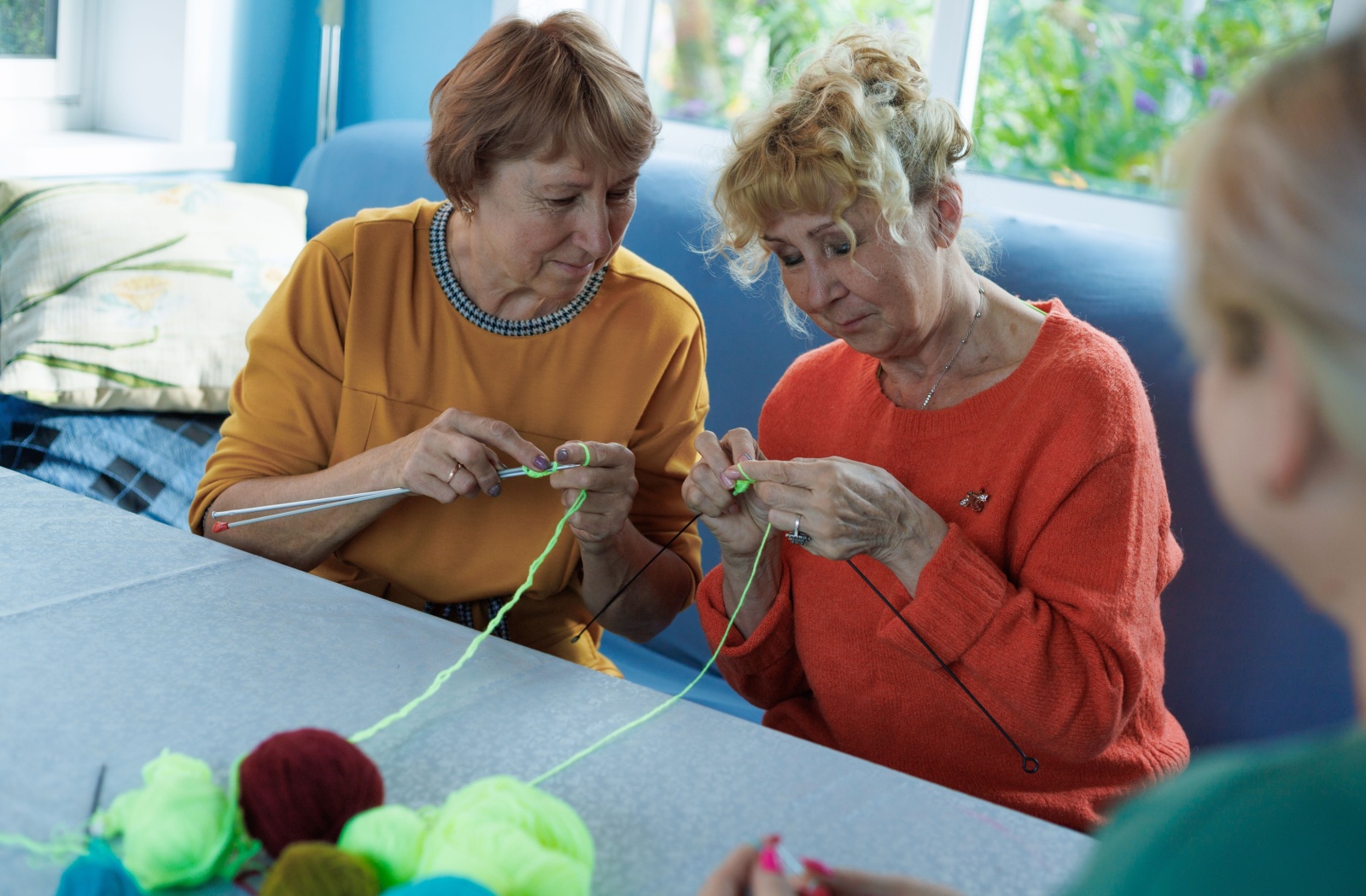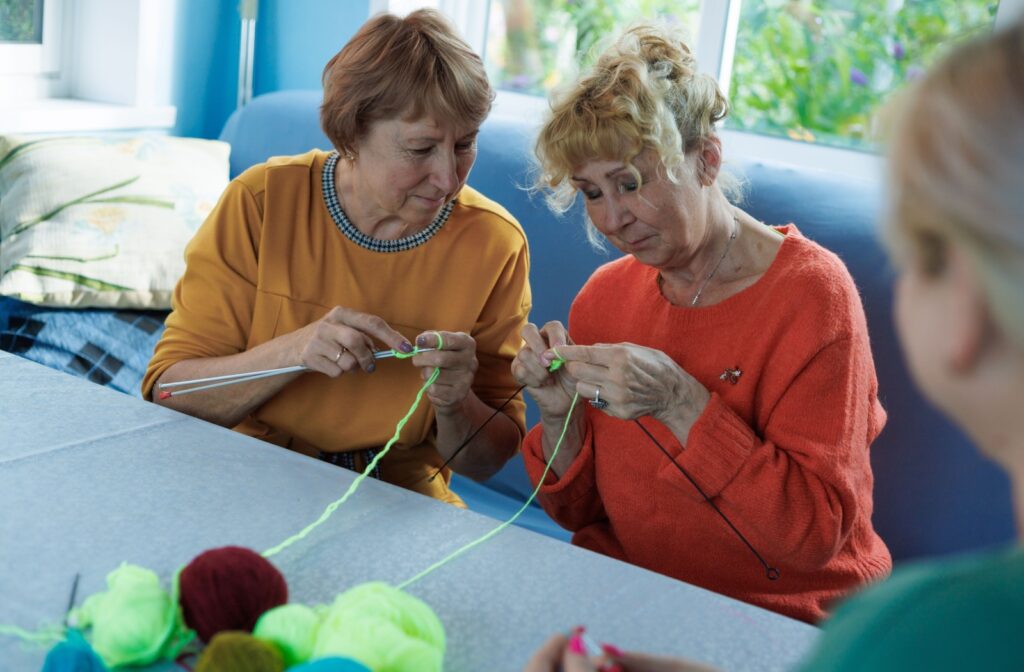Determining whether it’s time for a family member to transition to assisted living is rarely a straightforward decision. This important choice often evolves gradually as you notice various changes in your loved one’s daily life. Understanding the warning signs can help you make a well-informed decision when the time comes.
Several key indicators suggest that assisted living might be the right next step:
- Noticeable changes in physical capabilities
- Memory concerns that impact daily routines
- Struggles with household management and personal care
- Growing isolation from friends and community
- Home safety becoming a significant worry
- Caregiver stress reaching unsustainable levels
Recognizing these signs early allows families to explore options thoughtfully rather than making rushed decisions during a crisis. It’s also important to understand the different levels of care available—while some seniors may thrive in assisted living, others with more advanced cognitive decline might need specialized memory care services.
Changes in Physical Capabilities
Physical health changes often serve as the first indication that additional support may be beneficial.
Mobility and Movement Challenges
When you notice your family member having difficulty with stairs, struggling to maintain balance, or experiencing frequent stumbles, these mobility issues signal that a safer environment might be necessary. Communities designed for seniors offer features like accessible pathways, grab bars, and emergency response systems that provide both safety and peace of mind.
Personal Care and Grooming Difficulties
Personal hygiene can become challenging as seniors age. If you observe that your loved one is wearing unwashed clothing repeatedly, skipping showers, or neglecting dental care, these are clear signs that daily living assistance would be beneficial. Quality assisted living communities provide respectful support with personal care while maintaining residents’ dignity and autonomy.
Nutritional Concerns and Meal Preparation
Weight loss, forgotten meals, or a refrigerator full of expired food can indicate that meal planning and preparation have become overwhelming. Assisted living communities address this through chef-prepared meals, nutritional oversight, and flexible dining options that ensure residents maintain proper nutrition without the stress of meal planning.
Memory and Cognitive Changes
While some forgetfulness is normal with aging, certain memory changes warrant closer attention and professional evaluation.
Memory-related challenges become concerning when they interfere with daily functioning. This might include repeatedly asking the same questions, losing track of time or appointments, or becoming confused about familiar tasks. These changes can make independent living unsafe or stressful.
For seniors experiencing mild cognitive changes, assisted living with memory support services can provide structure and assistance. However, those diagnosed with dementia or Alzheimer’s disease typically require the specialized care and secure environment that dedicated memory care communities provide, with specially trained staff and programs designed for cognitive health.
Household Management Struggles
When maintaining a home becomes too demanding, it’s often time to consider supportive living arrangements.
Home Maintenance Becoming Overwhelming
Keeping up with cleaning, laundry, yard work, and home repairs can become increasingly difficult. If you notice your loved one’s home becoming cluttered or neglected, or if they’re expressing frustration about household tasks, assisted living can eliminate these burdens while allowing them to focus on enjoying their daily activities.
Financial Management Concerns
Unpaid bills, confusion about expenses, or vulnerability to financial scams are serious red flags. Assisted living communities often provide simplified billing and can help protect seniors from financial exploitation while maintaining their financial independence in a secure environment.
Medication Errors and Management Issues
Missed doses, double-dosing, or confusion about prescriptions can have serious health consequences. Professional medication management services in assisted living ensure proper dosing schedules and coordination with healthcare providers, significantly reducing medication-related risks.
Social Isolation and Loneliness
Social connections are vital for emotional and mental well-being, especially as we age.
When seniors begin withdrawing from activities they once enjoyed, declining invitations from friends, or spending most days alone, these isolation patterns can lead to depression and cognitive decline. The social environment of assisted living naturally combats loneliness through shared meals, organized activities, and opportunities for meaningful friendships.
Active engagement and mental stimulation are crucial for healthy aging. Communities that offer diverse programming—from fitness classes to cultural events to hobby groups—help residents maintain their interests while discovering new passions. At Minnehaha Senior Living, our music therapy programs and resident-led activities create vibrant opportunities for connection and personal growth.

Safety and Security Concerns
Home safety becomes increasingly important as physical and cognitive changes occur.
Environmental Safety Risks
Living alone can present various hazards, from falls in the bathroom to kitchen accidents or home intrusions. Purpose-built senior communities eliminate many of these risks through thoughtful design, emergency response systems, and round-the-clock security measures.
Peace of Mind for Families
Knowing that professional staff are available 24/7 provides immeasurable comfort to both seniors and their families. This security allows everyone to focus on enjoying time together rather than worrying about what might happen when family members aren’t present.
Proactive Health Monitoring
Regular wellness checks, on-site healthcare services, and coordinated care with physicians help prevent health crises before they occur. This proactive approach often leads to better health outcomes and fewer emergency situations.
Family Caregiver Stress and Burnout
Family caregiving, while loving, can become overwhelming and unsustainable over time.
Recognizing Caregiver Exhaustion
When family caregivers experience chronic fatigue, anxiety, resentment, or health problems of their own, it’s time to seek additional support. Caregiving responsibilities can strain relationships and negatively impact the caregiver’s own well-being.
Restoring Family Relationships
Transitioning caregiving responsibilities to professionals allows family members to return to being loving relatives rather than primary caregivers. This shift often improves relationships and allows for more quality time together focused on connection rather than care tasks.
Making an Informed Decision
Finding the right assisted living community is essential. Research communities, visit them, and ask questions to ensure they meet your loved one’s needs. Look for places that offer the care and support needed to address the signs you’ve observed.
We invite you to experience Minnehaha Senior Living firsthand. Contact our team today to schedule a personalized tour and discover how our community can support your loved one’s next chapter. Let us show you how we help residents live the lifestyle they want while providing the care and security families need.



